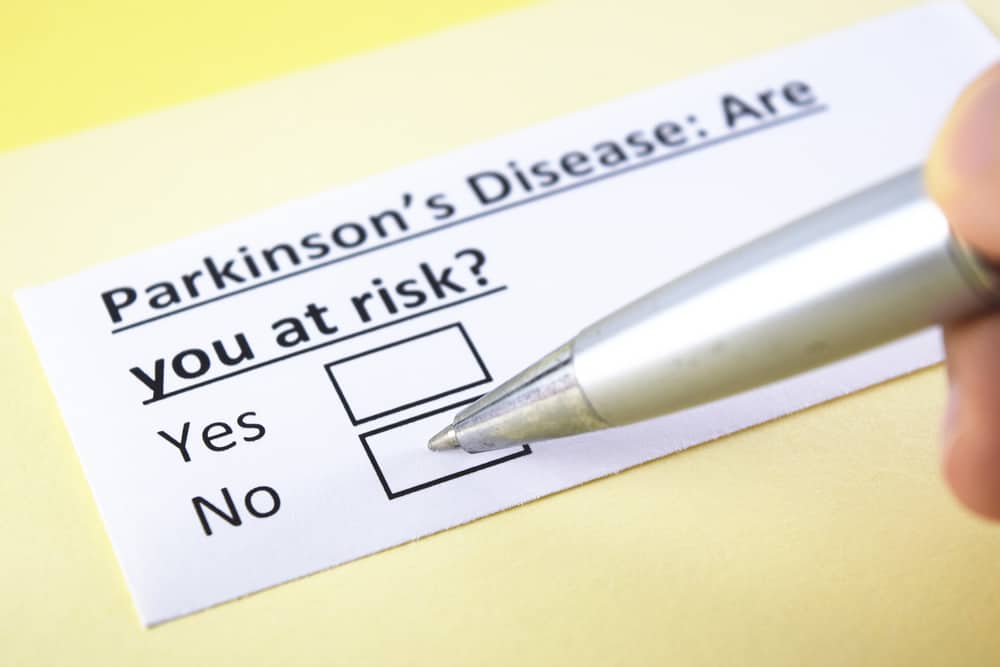
Parkinson’s disease is a progressive neurodegenerative disease that is most commonly known for affecting movement. It primarily impacts dopaminergic, or dopamine-producing, neurons in a specific area of the brain known as the substantia nigra.
While there is currently no cure for Parkinson’s disease, research efforts have significantly deepened our understanding of the factors associated with an increased risk of its development. In this article, we will discuss established risk factors for Parkinson’s disease and all-cause dementia.
Similar to Alzheimer’s disease, there is no single cause of Parkinson’s disease. Experts currently believe Parkinson’s disease is multifactorial, meaning it is not caused by a single factor, but rather develops from some combination of several factors. In the case of Parkinson’s disease, these factors are primarily genetic and environmental.
Many neurological diseases, including Parkinson’s disease and Alzheimer’s disease, can induce dementia. In the same way that Alzheimer’s can cause Alzheimer’s disease-related dementia, Parkinson’s can cause Parkinson’s disease-related dementia.
With that in mind, it is important to not only understand the risk factors for Parkinson’s disease itself, but also the risk factors for all-cause dementia. In a 2020 report of the Lancet Commission, they identified 12 potentially modifiable risk factors for dementia, as shown below.
| Risk Factor | Relative Risk for Dementia (95% CI) | Risk Factor Prevalence |
|---|---|---|
| >>Early-Life (age <45 years) | ||
| Less Education | 1.6 | 40% |
| Midlife (age 45-65) | ||
| Hearing Loss | 1.9 | 31.7% |
| Traumatic Brain Injury | 1.8 | 12.1% |
| Hypertension | 1.6 | 8.9% |
| Alcohol (>21 units/week) | 1.2 | 11.8% |
| Obesity (body mass index ≥30) | 1.6 | 3.4% |
| Later Life (age >65) | ||
| Smoking | 1.6 | 27.4% |
| Depression | 1.9 | 13.2% |
| Social isolation | 1.6 | 11.0% |
| Physical inactivity | 1.4 | 17.7% |
| Diabetes | 1.5 | 6.4% |
| Air pollution | 1.1 | 75.0% |
*Note: A relative risk value greater than 1.00 indicates increased risk of developing all-cause dementia, while a relative risk value less than 1.00 indicates decreased risk of developing all-cause dementia.
Experts estimate that the act of modifying these risk factors may prevent or delay up to 40% of dementia cases. It is never too early or too late to start making positive lifestyle changes and taking charge of your brain health. Here are several actionable steps you can take to control risk factors and promote brain health:
Like many other diseases and disorders, early intervention and early treatment of Parkinson’s disease is likely to produce better health outcomes. Additionally, many treatments, such as levodopa, are more effective when administered early in the disease continuum. People with known risk factors for Parkinson’s disease should be regularly assessed for changes in brain function to enable the earliest possible detection.
Altoida’s mission is to accelerate and improve drug development, neurological disease research, and patient care. To learn more about our precision-neurology platform and app-based medical device, contact us!